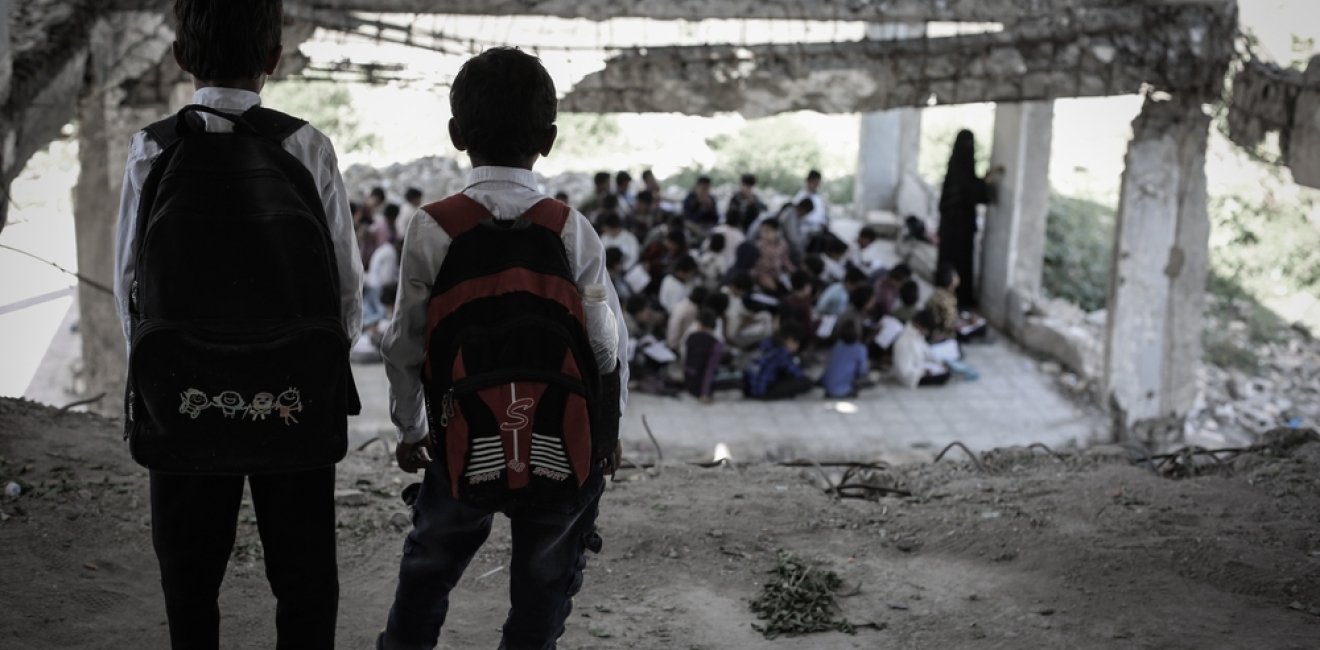We need to channel our efforts towards providing all Yemenis with education and training opportunities, which can help give them the skills they need to improve their circumstances.
Marred by myriad conflicts, Yemen, once known for its glory and prosperity, is now synonymous with humanitarian catastrophes and deadly violence. A decade's worth of war has further brought down a country that was considered to be on the brink of failure. Whatever strides the impoverished country had made before the war, no matter how small, were all lost in the years of fighting and institutional collapse. Today, by many measurements, the country continues to spiral down a slippery slope of decline and ambiguity. Yet, behind this veil of uncertainty, there are glimmers of hope— one of which is in education.
Throughout my career in Yemen, I’ve had the opportunity to work with highly educated and experienced professional Yemeni men and women, diverse in their backgrounds and opinions and unified in their commitment to making Yemen better. Education has opened doors for our generation and in return, we want to see improved future outcomes for young Yemenis.
Barriers to education
The impact of the conflict on women and children has been steep. Through the Yemen Information Center’s (YIC) reporting, we have learned that the quality of teaching and learning has been significantly compromised, with curricula manipulated to promote propaganda and teachers denied compensation or professional development.
As a result, children, instead of going to school, are actively recruited as child soldiers at alarming rates. Girls continue to face the threat of early marriage and are burdened with household chores and care for their siblings, making it very difficult for them to attend and stay in school.
For women, the conflict has exacerbated the physical and mental harm they are exposed to in Yemen.
Incredulous and arbitrary rules have been introduced in Yemen, like a requirement for women to have the written approval from their “male guardians” for them to travel alone. This tragic attack on women’s freedom of movement directly affects their ability to access education and income-generating activities. As the conflict has increased the number of female-headed households, these random restrictions are harmful. They only place more obstacles on women who are heads of households and often must scramble to find ways to sustain the livelihoods of their families.
Moreover, climate change aggravates the humanitarian crisis in Yemen, impacting agriculture, marine life, food security, migration, health outcomes, and the economy. An increased number of droughts and floods affect the agriculture sector’s ability to produce crops. The 4.5 million internally displaced people in Yemen often move to areas that are flood-prone and continue to face significant risks to their safety and health as a result. Women in these precarious situations are subjected to even more violence and face a higher risk of being kidnapped and trafficked. The constant fear and instability force women to abandon any small businesses they may have started and upend their lives in unpredictable ways.
Changing the education landscape
The YIC team regularly meets with local experts to understand the depth of the challenges and possible solutions. They often find that education and technical skills are important pillars of any potential way forward. We need to channel our efforts towards providing all Yemenis with education and training opportunities, which can help give them the skills they need to improve their circumstances.
Based on my previous experience working on education programs globally, I learned that early childhood development (including maternal health programs), safe schools (especially gender-responsive spaces), qualified teachers (paying them salaries and offering professional development), and school meals can act as powerful incentives for families to send their children to school and improves their chances of learning. Furthermore, youth need skills that will help them enter and succeed in the workforce. English language, entrepreneurship, and computer skills were among the top skills on the wish lists of some of the youth I spoke to in Jordan, Rwanda, and South Africa.
Given the fast paced advances in AI and technology, we also need to ensure that the people in Yemen don’t fall behind. Technology has the power to uplift societies. In the case of Yemen, as witnessed during the COVID-19 pandemic, technology helped bring Yemeni women’s voices to the world and help women entrepreneurs access new markets.
However, it comes with significant risks. Without awareness, women will continue to be subjected to digital forms of violence in the forms of bullying, harassment, and blackmail. In Yemen, digital forms of violence have become a contributing factor to the increasing rates of suicide among women in Yemen. Educating women on the uses and dangers of technology and giving them the tools to protect themselves is vital.
Yemen will need an educated and skilled workforce to help with the post-conflict reconstruction and economic recovery efforts. Education statistics can help policymakers know what to prioritize and include in their plans and budgets. According to World Bank Data, the adult literacy rate in Yemen was at 54% in 2004. Although we can imagine that the literacy rate has gotten much worse in recent years, we need more current national surveys to show updated data; this can help ensure the relevance of any proposed solutions and promote their effectiveness. With the right information, international actors, the private sector, local organizations, academia, and all of society in Yemen can play a role in ensuring that education is a priority.
The views expressed in this article are those of the author and do not express the official position of the Wilson Center.








